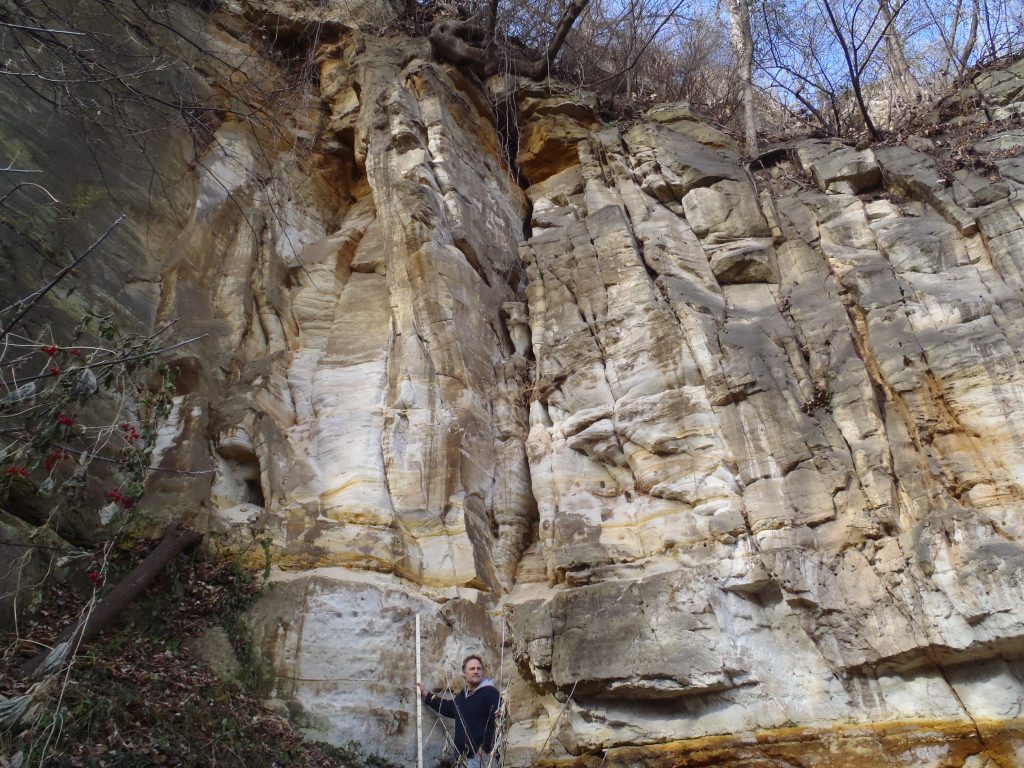By Tony Runkel

Why Southeast Minnesota?
Time seems to be flying as I enter the last few months of serving as MGWA president. It feels as though our spring conference was only a few weeks ago. But I am growing increasingly excited about the November 18th Fall Conference, “Rural and Sensitive: Groundwater across the ‘Driftless Area’ of Southeastern Minnesota and Adjacent States”.
Sadly, we have decided the fall conference must be held virtually once again. It would have been awesome to see you all in person. However, the continued uncertainties surrounding the COVID-19 situation means, among other things, that at this time the University of Minnesota cannot commit to hosting our meeting at anything near the capacity we require. On the upside, it will also allow us to include speakers who might otherwise not been able to travel long distances to participate.
Why southeast Minnesota? First, the president must admit to some bias. I attended high school in southeastern Minnesota, and was captivated by the landscape even at that time. Furthermore, for the past 30+ years I’ve been fortunate enough to conduct most of my hydrogeologic research in that part of the state, enjoying its beauty and at the same time developing professional connections with great collaborators ranging from academics focused on science to dedicated environmental regulators and managers. But the “driftless” area is also fascinating from a groundwater perspective and an excellent example of “surface water is groundwater is surface water”. And the water is especially vulnerable to contamination, with concerns becoming even more pronounced in the past several years.
The agenda has yet to be entirely fleshed out, but I think all MGWA members will find something of interest. We will focus on surface and groundwater quality concerns in southeastern Minnesota and adjacent states with topics that apply to anywhere groundwater is particularly sensitive to anthropogenic impacts. The program will differ from most MGWA conferences in having a greater number of speakers, providing shorter presentations. Logistically this creates some complexities for those of us running the conference, but that is our problem! For the audience, this will allow us to cover a large number of topics. We will hear about what’s going on in Wisconsin and Iowa as well as Minnesota. The morning sessions will collectively provide an overview of hydrogeologic conditions and the challenges that have emerged. This will include presentations on the geology and hydrogeology of the “driftless” area, status of water quality issues, and research dedicated to improving our understanding of contaminant transport through the surface water-groundwater system. Afternoon presentations will be dedicated more towards regulatory, management, and planning efforts. We will conclude the conference with presentations on strategies for better protecting groundwater quantity and quality.
Finally, I’d like to use this opportunity for a shout-out to MGWA member Andrew Streitz. As part of his recent retirement, Andrew is stepping down from his position on the MGWA Newsletter Team. Andrew served in this position for 8 years, and along with his colleagues has done a tremendous job producing a newsletter that keeps us updated with groundwater news across the state, and activities of the various units of MGWA. I very much enjoyed working with him during my brief tenure as president. Thank you, Andrew!
MGWA is committed to developing a just, equitable, and inclusive groundwater community. Click on the button below to read MGWA’s full diversity statement.